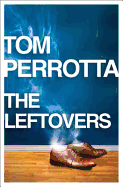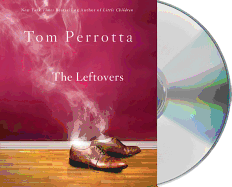

You have to go into it with openness and enthusiasm, a willingness to reimagine the world you created in the novel. One thing I've learned over the years is that there's a certain amount of surrender involved in this. That's the give and take of collaboration. The other 10 percent of the time, I push back and try to talk him out of something or slow him down. And often those visions will end up onscreen, almost completely intact.


It's like having my story filtered through an imagination that works on a very different frequency than my own. It's crazy to watch him work he'll go into a kind of trance and start telling you the movie he's seeing in his head. I think he enjoys it when he shocks me with a wild idea, but once he executes it, I end up agreeing with him 90 percent of the time. Paul Schiraldi/HBOĭamon is a more visceral and intuitive writer than I am, with a real gift for creating suspense and generating surprises. In The Leftovers, Justin Theroux plays Kevin Garvey, a father trying to maintain normalcy in the face of chaos. But The Leftovers will probably provoke some of the same reactions from the audience-the excitement of exploring the mystery through the lives of a broad range of characters and, possibly, some frustration when the show doesn't produce a simple explanation for what happened. (Coincidentally, Damon and I grew up about 20 minutes apart in New Jersey.) In some ways, this has put Damon in a very different storytelling universe than Lost. But it's not set on a desert island it's set in a recognizable suburban town. People have pointed out that there's some similarity to Lost in that the characters are dealing with a profoundly mysterious situation. It's not about how we survive when there's no food and no clean water, but how we endure when everything we believed has been, if not obliterated, then seriously challenged. The Leftovers takes place in a world that looks exactly like the world we live in now. I wanted to tell an apocalyptic story that didn't involve a nuclear holocaust or a zombie invasion. There's no scientific or religious narrative that can make sense of the event it just seems random. That idea turned into The Leftovers, where 2 percent of the world's population has just disappeared without any explanation. I'm not a religious person, and I found myself thinking about the Rapture not as a theological concept but as a powerful metaphor for getting older, for living with loss and mystery. While doing research for my novel The Abstinence Teacher, I kept bumping into the evangelical Christian concept of the Rapture. The Leftovers is a book that grew out of another book.


 0 kommentar(er)
0 kommentar(er)
